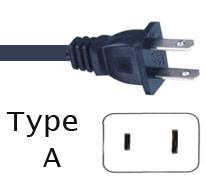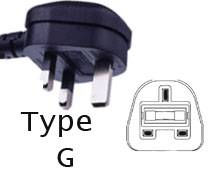St. Vincent, the largest island in the Caribbean nation of St. Vincent and the Grenadines, is a lush and picturesque destination known for its stunning natural beauty, rich cultural heritage, and warm hospitality. From its volcanic landscapes and tropical rainforests to its pristine beaches and vibrant coral reefs, St. Vincent offers travelers a diverse range of experiences. Explore the historic sites of Kingstown, the capital city, hike to breathtaking waterfalls in the interior, or sail to the idyllic Grenadine islands scattered in the sparkling Caribbean Sea. With its blend of adventure, relaxation, and authentic Caribbean charm, St. Vincent invites visitors to discover the true essence of island life.
Ultimate St. Vincent Travel Guide
Destinations
Best time to go
The best time to visit St. Vincent is during the dry season, which runs from December to April. During this time, the weather is typically sunny and dry, with warm temperatures and low humidity, making it ideal for beach vacations and outdoor activities. The hurricane season in the Caribbean lasts from June to November, so travelers should be aware of the possibility of tropical storms during this time.
Average Temperature By Month
January: 24°C to 29°C (75°F to 84°F)
February: 24°C to 29°C (75°F to 84°F)
March: 24°C to 30°C (75°F to 86°F)
April: 25°C to 30°C (77°F to 86°F)
May: 26°C to 31°C (79°F to 88°F)
June: 26°C to 31°C (79°F to 88°F)
July: 26°C to 31°C (79°F to 88°F)
August: 26°C to 31°C (79°F to 88°F)
September: 26°C to 31°C (79°F to 88°F)
October: 26°C to 31°C (79°F to 88°F)
November: 25°C to 30°C (77°F to 86°F)
December: 25°C to 30°C (77°F to 86°F)
What To Expect
Time Zone:
St. Vincent operates on Atlantic Standard Time (AST) year-round, which is UTC-4:00.
Currency:
The official currency of St. Vincent and the Grenadines is the Eastern Caribbean Dollar (XCD). US dollars are also widely accepted at many establishments on the island, especially in tourist areas and at hotels, restaurants, and shops.
Language:
English is the official language of St. Vincent and the Grenadines and is spoken by the majority of the population. The local dialect, known as Vincentian Creole, may also be heard in informal settings.
Airport:
Argyle International Airport (SVD) is the main airport serving St. Vincent, located on the eastern coast of the island near Argyle. The airport accommodates commercial flights from North America, Europe, and other Caribbean destinations, as well as inter-island flights to the Grenadine islands.
How To Get Around
Rental Cars: Renting a car is a popular option for exploring St. Vincent independently and accessing remote beaches and attractions. Several car rental agencies operate on the island, offering a range of vehicles to suit different preferences and budgets.
Taxis: Taxis are readily available on St. Vincent and provide convenient transportation for travelers exploring the island. Taxi rates are regulated by the government and are based on specific destinations, so it’s advisable to confirm the fare before starting your journey.
Public Transportation: Public buses, known as vans, operate on St. Vincent and provide affordable transportation between major towns and tourist areas. Vans are a popular mode of transportation for locals and visitors alike, offering a unique cultural experience.
Ferries: Inter-island ferries connect St. Vincent with the Grenadine islands, providing transportation for both residents and tourists. The ferry services offer scenic views of the Caribbean Sea and provide convenient access to each island’s unique attractions and activities.
Average Temperature By Month:
January: 24°C to 29°C (75°F to 84°F)
February: 24°C to 29°C (75°F to 84°F)
March: 24°C to 30°C (75°F to 86°F)
April: 25°C to 30°C (77°F to 86°F)
May: 26°C to 31°C (79°F to 88°F)
June: 26°C to 31°C (79°F to 88°F)
July: 26°C to 31°C (79°F to 88°F)
August: 26°C to 31°C (79°F to 88°F)
September: 26°C to 31°C (79°F to 88°F)
October: 26°C to 31°C (79°F to 88°F)
November: 25°C to 30°C (77°F to 86°F)
December: 25°C to 30°C (77°F to 86°F)
Plugs:
St. Vincent uses electrical outlets that are compatible with Type A and Type B plugs. Type A plugs have two flat parallel pins, while Type B plugs have two flat parallel pins and a grounding pin. The standard voltage is 230 volts AC, with a frequency of 50Hz.
VPN:
While internet access in St. Vincent is generally reliable, using a virtual private network (VPN) can provide added security and privacy, especially when accessing public Wi-Fi networks.
Safety:
St. Vincent is considered a safe destination for travelers, but it's essential to take standard precautions to ensure your safety and well-being while visiting the island. Be mindful of your belongings, particularly in crowded areas and tourist hotspots, and avoid displaying valuables or carrying large sums of cash. When swimming or participating in water activities, pay attention to local safety warnings and currents, especially during rough sea conditions. Additionally, respect local customs and traditions, and seek guidance from locals or tour operators when exploring remote areas or engaging in adventurous activities.
Credit Cards and Banks
Credit Cards:
Credit card acceptance in St. Vincent is relatively widespread, especially in urban areas, tourist destinations, hotels, restaurants, and larger shops. Visa and MasterCard are the most commonly accepted cards, followed by American Express and Discover. Contactless payments, including Apple Pay and Google Pay, are also becoming increasingly available.
ATMs:
ATMs are available in major towns and tourist areas throughout St. Vincent, allowing you to withdraw Eastern Caribbean Dollars (XCD) or US dollars. Kingstown, the capital of St. Vincent, and popular tourist spots like Bequia and Mustique have a good number of ATMs. However, it’s advisable to carry enough cash for smaller establishments and when visiting more remote areas, as ATM availability may be limited.
Currency Exchange:
The official currency of St. Vincent is the Eastern Caribbean Dollar (XCD), which is pegged to the US dollar. US dollars are widely accepted, especially in tourist areas, but it’s recommended to have Eastern Caribbean Dollars for transactions outside of these areas. You can exchange major foreign currencies at banks, currency exchange bureaus, and some hotels.
Banks:
Major banks in St. Vincent include:
- Bank of St. Vincent and the Grenadines (BOSVG): The largest bank in St. Vincent, BOSVG offers a range of banking services including savings accounts, loans, and foreign exchange.
- Republic Bank (EC) Limited: Another prominent bank in St. Vincent, Republic Bank provides various banking products and services for individuals and businesses.
Traveler’s Checks:
Traveler’s checks are becoming less common worldwide, and their usage is limited in St. Vincent. It’s recommended to carry cash or use credit/debit cards for transactions. However, some banks may still offer services for cashing traveler’s checks.
Tips for Banking in St. Vincent:
- Notify your bank before traveling to St. Vincent to inform them of your travel plans and avoid any issues with card usage abroad.
- Keep your PIN and card information secure, and be cautious when using ATMs, especially in secluded areas or at night.
- Carry small denominations of Eastern Caribbean Dollars or US dollars for smaller purchases, as change may be limited.
- Familiarize yourself with the current exchange rate to ensure fair transactions when exchanging currency.
By understanding the banking system in St. Vincent, you can ensure a smooth and hassle-free financial experience during your travels on the island.
Locations
St. Vincent
TRAVEL FACTS
US State Dept Travel Advisory
The US Department of State currently recommends US citizens exercise normal precautions in Saint Vincent and the Grenadines. Consult its website via the link below for updates to travel advisories and statements on safety, security, local laws, and special circumstances in this country.
https://travel.state.gov/content/travel/en/traveladvisories/traveladvisories.html
Passport/Visa Requirements
For the latest passport and visa requirements for this country, please consult the U.S. State Department’s “Learn About Your Destination” search tool, available through the link below.
US Embassy/Consulate
US does not have an embassy in Saint Vincent and the Grenadines; the US Ambassador to Barbados is accredited to Saint Vincent and the Grenadines +(246) 227-4399; EMER: +(246) 227-4000; US Embassy Bridgetown, Wildey Business Park, Wildey, St. Michael BB 14006, Barbados, W.I.; BridgetownACS@state.gov; https://bb.usembassy.gov
LGBTQIA+ Travelers
Telephone Code
784
Local Emergency Phone
999, 911
Vaccinations
An International Certificate of Vaccination for yellow fever is required for travelers arriving from countries with a risk of yellow fever transmission and for travelers having transited through the airport of a country with risk of yellow fever transmission. See WHO recommendations.
Climate
Tropical; little seasonal temperature variation; rainy season (May to November)
Currency (Code)
East Caribbean dollars (XCD)
Electricity/Voltage/Plug Type(s)
110 V, 230 V / 50 Hz / plug types(s): A, B, G



Major Languages
English, Vincentian Creole English, French patois
Major Religions
Protestant 75%, Roman Catholic 6.3%, Rastafarian 1.1%, Jehovah’s Witness 0.8%
Time Difference
UTC-4 (1 hour ahead of Washington, DC, during Standard Time)
Potable Water
Opt for bottled water
International Driving Permit
Suggested
Road Driving Side
Left
Tourist Destinations
Tobago Cays; Montreal Gardens; La Soufriere cross country trail; Firefly Plantation in Bequia; Botanical Gardens in Kingstown; Dark View Falls; Vermont Natural Trail; Fort Duvernette; Bequia Beach; Union Beach
Major Sports
Rugby, cricket, soccer, netball, basketball, volleyball, tennis
Cultural Practices
Avoid cursing or using foul language as it is considered a criminal offense.
Tipping Guidelines
A service charge of 10% is usually added to a restaurant or hotel bill, but if not, leave at least 10-15% depending on your satisfaction with the service. Tip taxi drivers 10%, bellhops $2 (USD) per bag, and housekeeping $2 per night.
Souvenirs
Sailboat models, recreational boats, handmade jewelry, handmade clothing, spices and hot sauces, straw-made items, grass rugs
Traditional Cuisine
Roasted breadfruit and fried jackfish — whole breadfruit are roasted over an open fire; the jackfish is typically marinated in lemon juice, coated in flour, and then fried; a sauce made with onions, tomatoes, garlic, thyme, or other herbs and vegetables is usually served alongside the dish
Please visit the following links to find further information about your desired destination.
World Health Organization (WHO) – To learn what vaccines and health precautions to take while visiting your destination.
US State Dept Travel Information – Overall information about foreign travel for US citizens.
To obtain an international driving permit (IDP). Only two organizations in the US issue IDPs:
American Automobile Association (AAA) and American Automobile Touring Alliance (AATA)
How to get help in an emergency?
Contact the nearest US embassy or consulate, or call one of these numbers:
from the US or Canada – 1-888-407-4747 or from Overseas – +1 202-501-4444
Central Intelligence Agency.
The World Factbook.
/the-world-factbook
(May 8, 2024)



